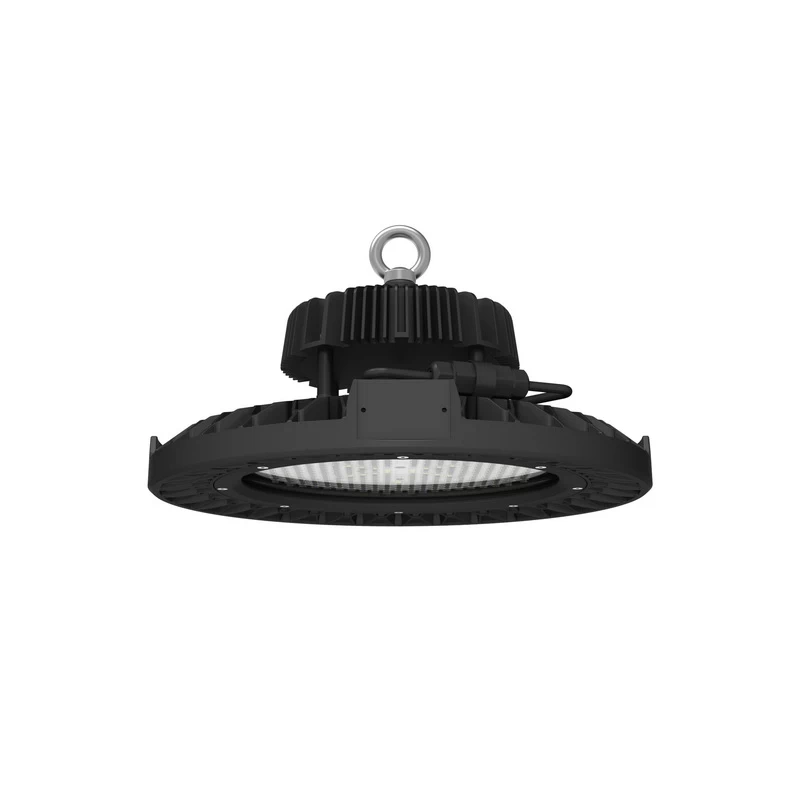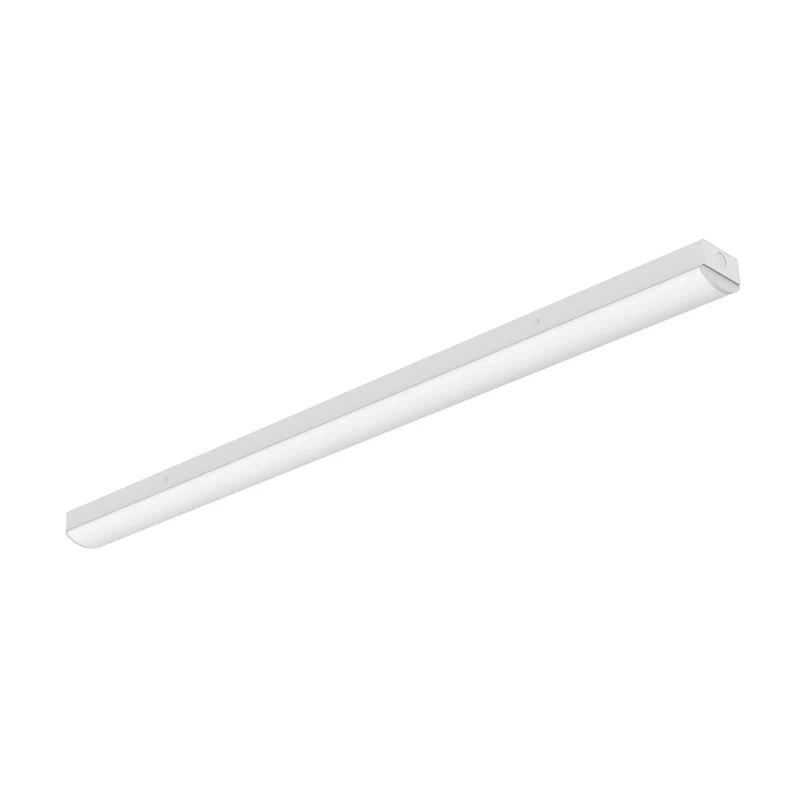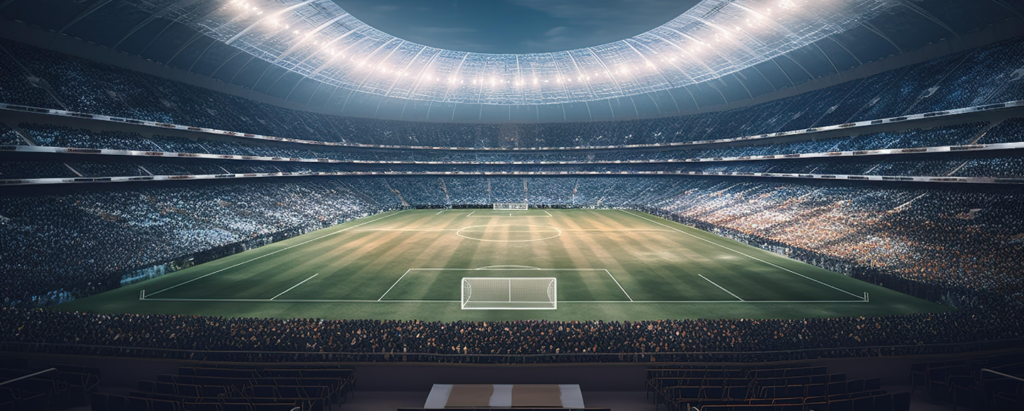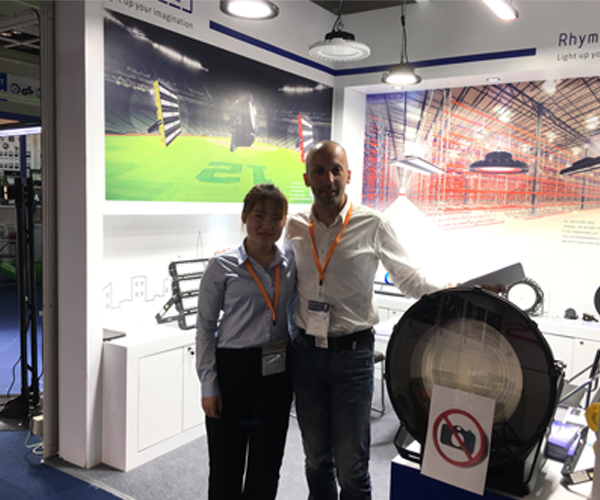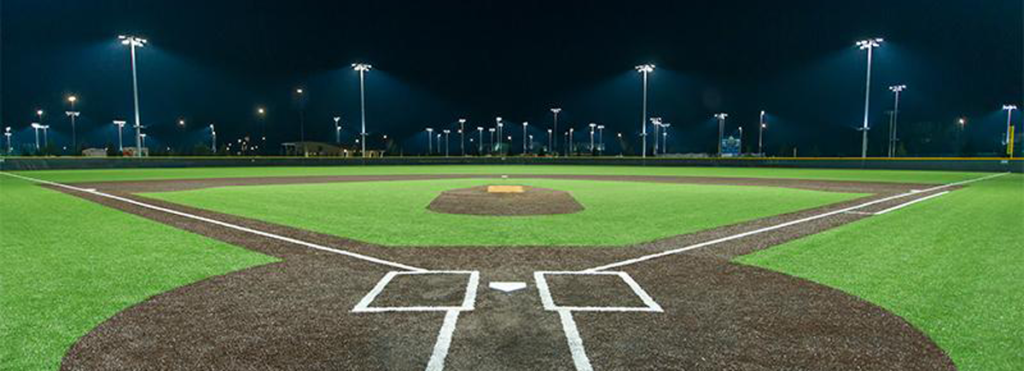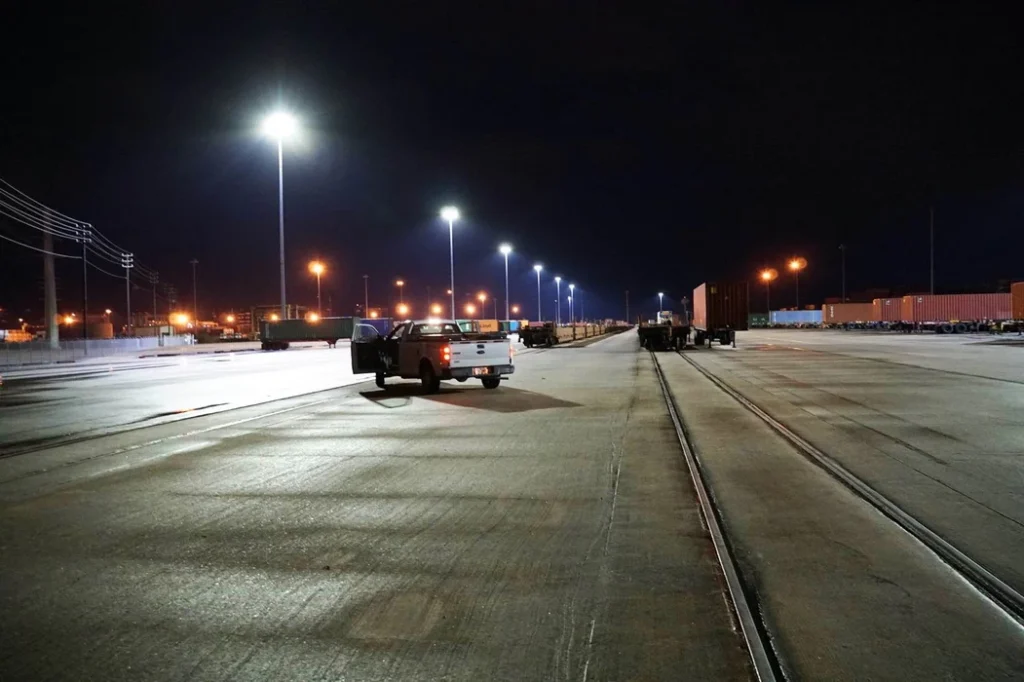Table of Contents
ToggleIntroduction
To accommodate diverse lighting needs, application scenarios, and installation environments, outdoor LED flood lights have variety of popular installation methods. Proper installation methods are crucial for optimal lighting performance, and different installation methods require varying levels of waterproofing.
This article will introduce 4 common installation methods and application scenarios for outdoor waterproof LED flood lights.
1. Ground Mounted Flood Lights
When outdoor LED flood lights are ground mounted, their core purpose is to project light upward or forward from a low position over a wide area at a close distance. They are often used in situations where it’s not possible to install at high position, and can highlight the bottom details of the illuminated object.
Fixture Features
- Power: 30W–60W is sufficient for garden, yard, and small landscape flood lighting.
- Beam Angle: A wider beam angle (60°–120°) is more suitable for ground-mounted floodlights, providing even light coverage.
- Protection Level: The device is susceptible to waterlogging and impact from irrigation nozzles; IP66 or higher is recommended.
- Casing Material: Choose a corrosion-resistant aluminum alloy or stainless steel casing with a tempered glass cover.

Advantages
- Flexible Installation: No need to rely on existing building structures or poles, it can be independently installed at any desired ground location.
- Easy Maintenance: All components are easily accessible, making cleaning, adjusting the angle, and replacing the simple.
- Suitable for decorative lighting and atmosphere creation.
Disadvantages
- Environmental Impact: Easily covered by dirt, snow, and fallen leaves, requiring regular cleaning.
- Collision Risk: Pedestrians, vehicles, and machinery can accidentally collide with the flood lights.
- Glare Control: Improper design and commissioning can easily cause glare to personnel.
Application Scenario
Ground mounted floodlights are commonly used for landscape lighting, such as gardens, courtyards, trees, sculptures and building facades. However, there are some differences in their core uses.
| Application | Beam Angle | Description |
|---|---|---|
| Garden / Pathway | 60°–120° | Creates soft, even ground-level lighting for walkways. |
| Lawn / Park | 90°–120° | Covers wide outdoor areas with uniform illumination. |
| Building Façade | 15°–120° | Uplighting effect highlights architectural details from the ground. |
| Trees / Plants | 15°–45° | Accents trunks and branches with upward beams. |
| Sculpture / Fountain | 15°–60° | Highlights objects from below, resistant to splashes. |
2. Wall Mounted Flood Lights
When waterproof outdoor LED flood lights are wall mounted, the core purpose is to use the existing building structure as a support point, and the lights project light downward from a higher position to achieve wide-area lighting. The installation is relatively simple and is one of most widely used outdoor LED flood light installation methods.

LED Flood Lights Features
- Mounting Height: Typically installed between 2.5 and 6 meters, for wide coverage.
- Power: Commonly seen in a wide range, typically between 50W and 300W.
- Beam Angle: Suitable for medium-to-wide angles of 60°–120°, providing even ground coverage.
- Protection Rating: Also requires IP65–IP66 due to frequent exposure to rain and dust.
- Accessories: Can be used with motion sensors for automatic power on/off and energy saving.
Advantages
- Easy Installation: Utilizes existing wall surfaces for low cost and fast installation.
- Flexible Application: Suitable for various wall surfaces, pillars, and fences, with flexible mounting height and angle options.
- Wide Coverage: Reduces obstructions, resulting in more even light distribution.
Disadvantages
- Reliant on Existing Structures: Requires sturdy wall or pillar for installation, making it unsuitable for all environments.
- Aesthetic Impact: Exposed lamps, brackets, and conduit can detract from the aesthetics of a building’s facade.
Application Scenario
Wall-mounted waterproof outdoor LED flood lights have a wide lighting range and are usually fixed to building exterior walls, fences, warehouse facades or garage doors.
| Application | Beam Angle | Description |
|---|---|---|
| Residential Walls | 60°–120° | Provides downward lighting for yards and entrances. |
| Warehouses & Factories | 60°–90° | Covers wide working areas with uniform illumination. |
| Parking Lots / Garages | 90°–120° | Enhances safety and visibility in vehicle zones. |
| Fences & Gates | 60°–120° | Improves security and access lighting at boundaries. |
3. Pole Mounted Flood Lights
 LED Floodlight Features
LED Floodlight Features
- Mounting Height: Generally 6–12 meters, but can reach over 20 meters in stadiums or large plazas.
- Power: Commonly ranges from 200W–2000W, depending on the venue size.
- Beam Angle: Flexible options available, from a narrow 15° angle to a wide 120° angle.
- Protection Rating: IP65–IP66 or higher, with wind and earthquake resistance.
- Accessories: 0-10V dimming and intelligent control systems.
- Large Illumination Area: Multiple LED floodlights installed on a single pole provide extensive coverage.
- Uniform Lighting: High installation height effectively reduces glare and enhances visual comfort.
- Safety: The fixtures are located high in the air, preventing vandalism and collisions.
- High Cost: This includes the costs of the pole, foundation, and construction, resulting in the highest initial investment.
- Difficult Maintenance: Replacing or repairing the fixtures is costly and difficult.
| Application | Beam Angle | Description |
|---|---|---|
| Road Intersection | 60°–120° | Enhances visibility at road crossings and improves safety. |
| Parking Lots | 90°–120° | Covers large open areas for drivers and pedestrians. |
| Stadium | 15°–60° | Provides bright, even lighting for training or professional competitions |
| Plazas & Docks | 60°–120° | Illuminates wide public areas for safety and usability at night. |
4. Portable/Tripod Mounted Flood Lights
This type of installation requires specially designed flood lights with adjustable brackets or handles. They can be placed on a tripod or portable for mobile use. They do not require fixed installation and are often used for temporary lighting, construction sites, outdoor activities, can be moved flexibly.
The first three installation methods can use ordinary industrial waterproof outdoor LED flood lights. However, mobile/bracket mounted floodlights require professionally designed lights.

LED Floodlight Features
- Mounting: Secure via a bracket or tripod, allowing for easy movement and angle adjustment.
- Power: Typically ranges from 50W to 200W, meeting portability and high brightness requirements.
- Beam Angle: Typically 90° to 120°, suitable for wide coverage.
- Protection Rating: Must be IP65 or higher, resistant to outdoor rain and dust.
- Power Supply: Available in plug-in, rechargeable battery, and solar power.
Application Scenario
| Application | Beam Angle | Description |
|---|---|---|
| Construction Sites | 90°–120° | Provides temporary lighting for workers and equipment. |
| Outdoor Events / Gatherings | 90°–120° | Illuminates stages, tents, and general event areas. |
| Camping / Night Activities | 90°–120° | Portable lighting for tents, pathways, or outdoor tasks. |
| Emergency / Repair Work | 90°–120° | Quickly deployable lighting for power outages or roadside repairs. |
Conclusion & Our LED Floodlight Series

The installation method of outdoor LED floodlights needs to be determined according to the application scenario. Regardless of the installation method, the waterproof level must be IP65 or above.
We are a professional manufacturer of industrial LED outdoor floodlights. We offer a wide range of floodlights suitable for roads, stadiums, parking lots, ports, warehouses, and more. View our LED floodlight catalog or contact us for a customized lighting solution.
| Installation Method | Advantages | Disadvantages | Typical Applications |
|---|---|---|---|
| Ground Mounted | Easy to install, great for uplighting | May be blocked, requires high IP rating | Gardens, landscapes, building facades |
| Wall Mounted | Space-saving, wide coverage | Angle adjustment limited | Warehouses, billboards, garages |
| Pole Mounted | Large coverage, suitable for high areas | Higher cost, requires professional setup | Stadiums, docks, roadways, parking lots |
| Portable/Tripod Mounted | Flexible, movable, temporary use | Less stable, not for permanent setups | Construction sites, outdoor events |
People Also Ask
Which outdoor LED floodlight installation method is best for stadiums?
The decision depends on type of stadium. If it’s a large, open outdoor area, pole mounting is a good option. If it’s a semi-outdoor venue, wall mounting is a better option due to the architecture. For a top-tier stadium, a combination of pole and wall mounting is recommended.
Do wall-mounted flood lights need extra waterproof protection?
If the professional outdoor waterproof LED floodlight is wall-mounted, then no additional waterproof protection is required, because the protection level of the lamp is at least IP65. However, it is still necessary to confirm the protection level of the floodlight in advance.
Can portable tripod flood lights be used in rainy weather?
Generally, it can be used. However, please note that models with an IP65 rating or higher can be used in rainy weather. They must also be placed securely to prevent them from collapsing due to weather conditions.
What is the minimum protection level for outdoor waterproof LED flood lights?
LED floodlights used outdoors should have a protection level of at least IP65 no matter where they are installed to ensure the stability of lighting.


